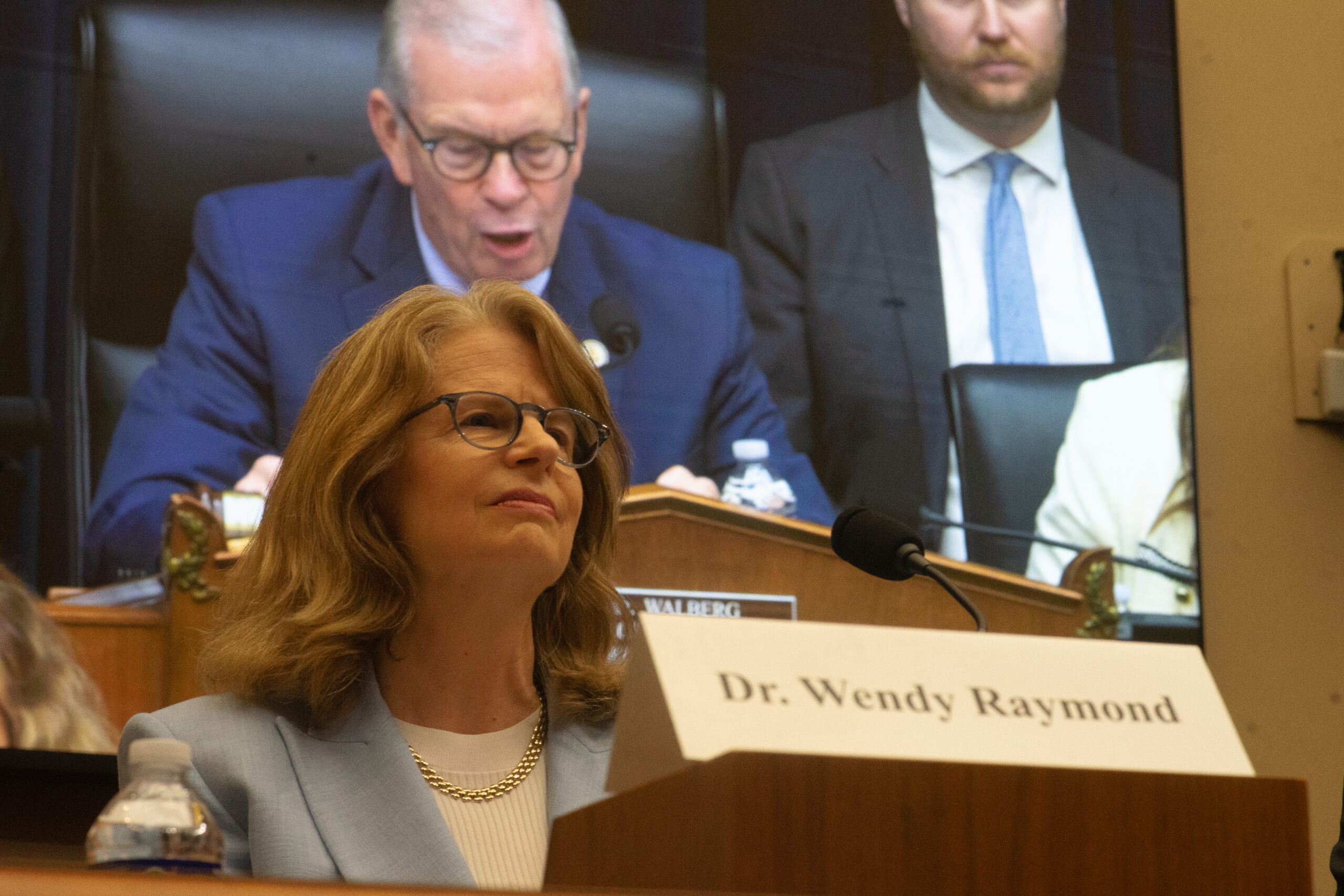President Wendy Raymond faced aggressive questioning from Republican leaders earlier today, during a congressional hearing titled “Beyond the Ivy League: Stopping the Spread of Antisemitism on American Campuses.” Raymond, who testified alongside the presidents of DePaul University and California Polytechnic State University, came under repeated attacks from Republican lawmakers on what they alleged was a campus environment of antisemitism. Unlike the presidents of DePaul and Cal Poly, Raymond failed to appease the Republican-dominated committee, declining to give a direct answer on whether disciplinary actions were carried out against students accused of violating school policy.
The hearing was also a hotbed of partisan political tension, with Democratic representatives pointing out discrepancies in the Republican-led argument against Haverford and similar institutions of higher education. Lucy McBath (D-Georgia) said that the members of the committee who claimed to be advocating for Jewish students were “more motivated [about] going viral on social media” than protecting students. Greg Casar (D-Texas) asked committee members to raise their hand if they condemned President Donald Trump’s infamous statement calling those who partook in the antisemitic riots in Charlottesville “very fine people.” No Republican did.

An internal memo written and passed around by faculty members at Haverford, which has been reviewed by the Bi-College News, expressed support for Raymond ahead of the hearing. Signed by over fifty faculty members, the memo stated that faculty “unequivocally support President Raymond’s actions to protect and foster institutional autonomy… freedom of expression, and academic freedom.”
Elise Stefanik (R-New York) in particular grilled Raymond, singling out her refusal to give concrete numbers on students suspended or expelled for antisemitic speech. Stefanik previously gained prominence in the Republican party after questioning the presidents of University of Pennsylvania, Harvard, and Massachusetts Institute of Technology in a similar congressional hearing in December of 2023. The presidents of the University of Pennsylvania and Harvard resigned following the testimony.

“You [Raymond] were the one university president who failed to lay out if any disciplinary action or suspensions had taken place,” Stefanik said.
While Raymond ultimately acknowledged that some disciplinary proceedings had occurred, she refused to discuss individual cases, saying “respectfully, I will not be talking about individual cases.”
“Respectfully,” Stefanik said in response, “many people have said this who are no longer presidents of universities.”
Two representatives, both Republicans, threatened Haverford’s federal funding: Robert Onder (R-Missouri) and Ryan Mackenzie (R-Pennsylvania).
Onder, the first to discuss Haverford’s federal funding, questioned Raymond on the protests against the Anti-Defamation League, which were led in part by Bi-Co Jewish Voice for Peace (JVP), a Jewish anti-Zionist organization.

“Do you believe that is an incident [of antisemitism]?” Onder asked.
Raymond replied by saying that “Zionists are Jews and not Jews, and we do not accept discrimination against anyone at Haverford.”
Onder, like several other Republican committee members, asked Raymond, “[were] any students involved in that incident were disciplined?”
“We did… discipline some of the students…” Raymond began, before she was quickly cut-off by Onder, who asked Raymond to specify the disciplinary actions taken.
“How many students were disciplined and in what ways?” he asked.
Raymond once again declined to give specific information. Odner then turned to an unverified accusation against Nikki Young, Haverford’s Vice President for Institutional Equity and Access, whom he claimed said “Blacks and gays have not felt safe on campus [for a long time], it is now the turn of Jewish students.”
Raymond denied that Young had ever made such a statement, and Odner pressed further by asking “If someone made such a statement, should they be fired?” Raymond began to respond, but was quickly cut off and accused of dodging questions. “Its your first amendment to be evasive…[it is our rights] to decide that such institutions are not deserving of tax-payer money,” Odner finished his remarks.
Mackenzie, a representative of Pennsylvania’s 7th district, gave similarly menacing remarks by asking, “you do receive federal money, do you not?”
“We do, in a wonderful partnership with the federal government,” Raymond said in response.
“Well, that partnership may be in jeopardy,” Mackenzie replied.

Amidst President Donald Trump’s crackdown on pro-Palestinian speech, multiple other institutes have faced threats to federal funding, including, most recently, Harvard University, who has had government grants halted. Some universities, like Columbia, have made serious concessions to Trump in an effort to maintain government funding. Unlike larger colleges, though, Haverford is less dependent on federal funding.
The hearing ended in a particularly disparaging tone towards Haverford, as Chairman Tim Walberg (R-Michigan) thanked the presidents of DePaul and Cal Poly, but did not mention Raymond.
“I thank the two campuses here today, DePaul and [California Polytechnic] for being able to demonstrate at least in words, and of course we’re looking for the policy and outcomes, but you were able to tell us of mistakes and now what you‘re doing to remedy that.”
